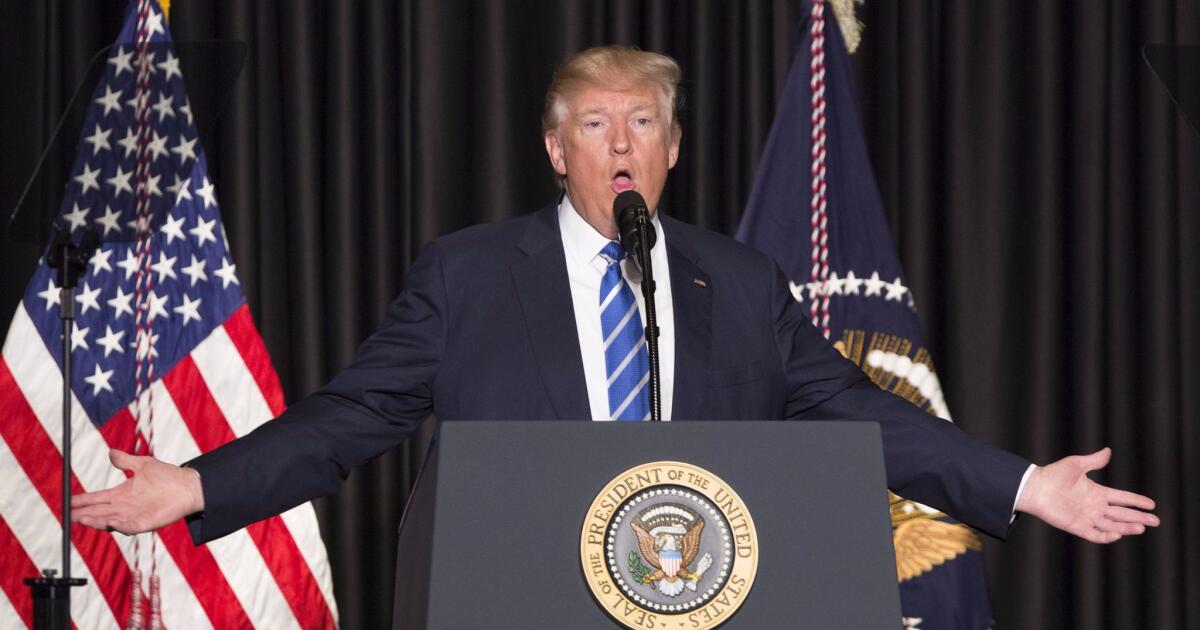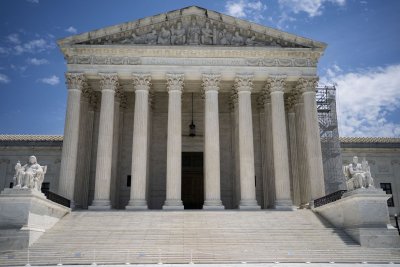Trump administration says SNAP will be partially funded after judges’ rulings
President Trump’s administration said Monday that it will partially fund SNAP after a pair of judges’ rulings required it to keep the food aid program running.
The U.S. Department of Agriculture had planned to freeze payments to the Supplemental Nutrition Assistance Program starting Nov. 1 because it said it could no longer keep funding it due to the shutdown. The program serves about 1 in 8 Americans and is a major piece of the nation’s social safety net. It costs about $8 billion per month nationally.
It’s not clear how much beneficiaries will receive, nor how quickly beneficiaries will see value show up on the debit cards they use to buy groceries. The process of loading the SNAP cards, which involves steps by state and federal government agencies and vendors, can take up to two weeks in some states. The average monthly benefit is usually about $190 per person.
The U.S. Department of Agriculture, which oversees the nation’s largest food program, said last month that benefits for November wouldn’t be paid out due to the federal government shutdown. That set off a scramble by food banks, state governments and the nearly 42 million Americans who receive the aid to find ways to ensure access to groceries.
Most states have boosted aid to food banks, and some are setting up systems to reload benefit cards with state taxpayer dollars.
It also spurred lawsuits.
Federal judges in Massachusetts and Rhode Island ruled separately but similarly Friday, telling the government that it was required to use one fund with about $5 billion to pay for the program, at least in part. The benefits and administration cost over $8 billion per month.
The judges gave the government the option to use additional money to fully fund the program and a deadline of Monday to decide.
Judge John J. McConnell Jr., in Providence, Rhode Island, said if the government chose full funding, it would need to make payments Monday. With a partial version, which would require recalculating benefits, the payment deadline is Wednesday.
Trump said on social media Friday that he does “NOT want Americans to go hungry just because the Radical Democrats refuse to do the right thing and REOPEN THE GOVERNMENT.” He said he was telling government lawyers to prepare SNAP payments as soon as possible.
Benefits will be delayed in November because many beneficiaries have their cards recharged early in the month and the process of loading cards can take weeks in many states.
Democratic state attorneys general or governors from 25 states, as well as the District of Columbia, challenged the plan to pause the program, contending that the administration has a legal obligation to keep it running in their jurisdictions. Cities and nonprofits also filed a lawsuit.
The USDA has a $5 billion contingency fund for the program, but the Trump administration reversed an earlier plan to use that money to keep SNAP running. Democratic officials argue that the administration could also use a separate fund of about $23 billion.
U.S. District Judge John J. McConnell in Providence, Rhode Island, said SNAP must be funded using at least contingency funds, and he asked for an update on progress by Monday.
In an additional order Saturday, McConnell said if the government makes full payments, it must do so by the end of the day Monday. If it chooses partial ones — which involve recalculating how much recipients get — those would need to be issued by Wednesday.
That does not mean people would necessarily see the payments that quickly, because the process of loading cards can take up to two weeks in some circumstances.
McConnell also ruled that all previous work requirement waivers must continue to be honored. During the shutdown, the USDA has terminated existing waivers that exempted work requirements for older adults, veterans and others.
In Boston, U.S. District Judge Indira Talwani ruled the suspension was unlawful and said USDA has to pay for SNAP. Talwani ordered the federal government to advise by Monday whether they will use emergency reserve funds to provide reduced SNAP benefits for November or fully fund the program using both contingency funds and additional available funds.
Advocates and beneficiaries say halting the food aid would force people to choose between buying groceries and paying other bills. The majority of states have announced more or expedited funding for food banks or novel ways to load at least some benefits onto the SNAP debit cards.
Rhode Island officials said Monday that under their program, SNAP beneficiaries who also receive benefits from another federal program, Temporary Assistance for Needy Families, received payments Saturday equal to one-fourth of what they typically get from SNAP. Officials in Delaware are telling recipients that benefits there won’t be available until at least Nov. 7.
To qualify for SNAP in 2025, a household’s net income after certain expenses can’t exceed the federal poverty line. For a family of four, that’s about $32,000 per year. Last year, SNAP assisted nearly 42 million people, about two-thirds of whom were families with children.
Mulvihill writes for the Associated Press. AP reporter Kimberlee Kruesi in Providence, R.I., contributed to this report.




